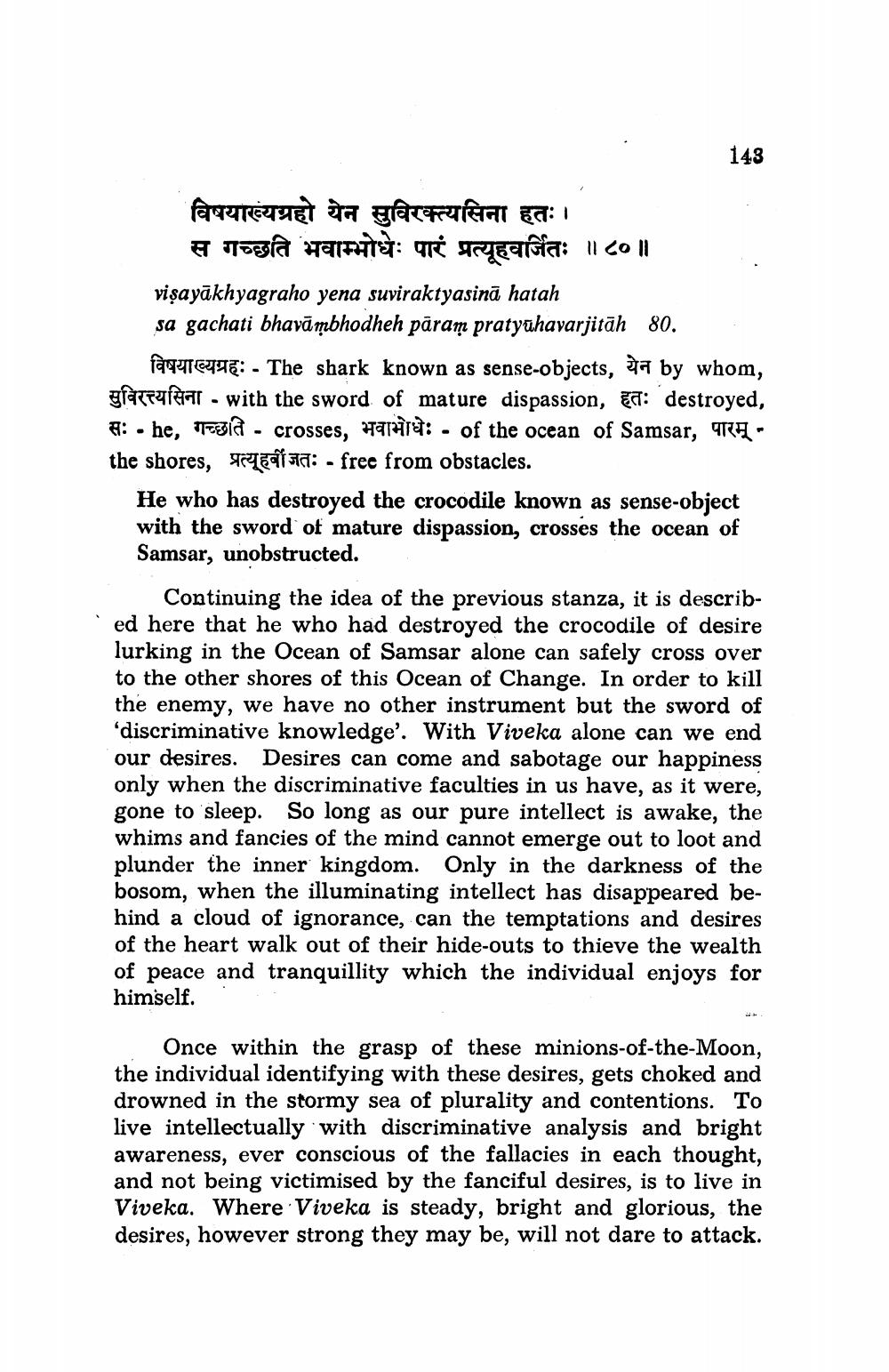________________
143
विषयाख्यग्रहो येन सुविरक्त्यसिना हतः।
स गच्छति भवाम्भोधेः पारं प्रत्यूहवर्जितः ॥ ८॥ visayākhyagraho yena suviraktyasinā hatah sa gachati bhavāmbhodheh pāram pratyahavarjitāh 80.
faceret: - The shark known as sense-objects, da by whom, gracruftar - with the sword of mature dispassion, Et: destroyed, सः - he, गच्छति - crosses, भवाभोधेः . of the ocean of Samsar, पारम् - the shores, FLET AC: - free from obstacles.
He who has destroyed the crocodile known as sense-object with the sword of mature dispassion, crosses the ocean of Samsar, unobstructed.
Continuing the idea of the previous stanza, it is described here that he who had destroyed the crocodile of desire lurking in the Ocean of Samsar alone can safely cross over to the other shores of this Ocean of Change. In order to kill the enemy, we have no other instrument but the sword of 'discriminative knowledge'. With Viveka alone can we end our desires. Desires can come and sabotage our happiness only when the discriminative faculties in us have, as it were, gone to sleep. So long as our pure intellect is awake, the whims and fancies of the mind cannot emerge out to loot and plunder the inner kingdom. Only in the darkness of the bosom, when the illuminating intellect has disappeared behind a cloud of ignorance, can the temptations and desires of the heart walk out of their hide-outs to thieve the wealth of peace and tranquillity which the individual enjoys for himself.
Once within the grasp of these minions-of-the-Moon, the individual identifying with these desires, gets choked and drowned in the stormy sea of plurality and contentions. To live intellectually with discriminative analysis and bright awareness, ever conscious of the fallacies in each thought, and not being victimised by the fanciful desires, is to live in Viveka. Where Viveka is steady, bright and glorious, the desires, however strong they may be, will not dare to attack.




